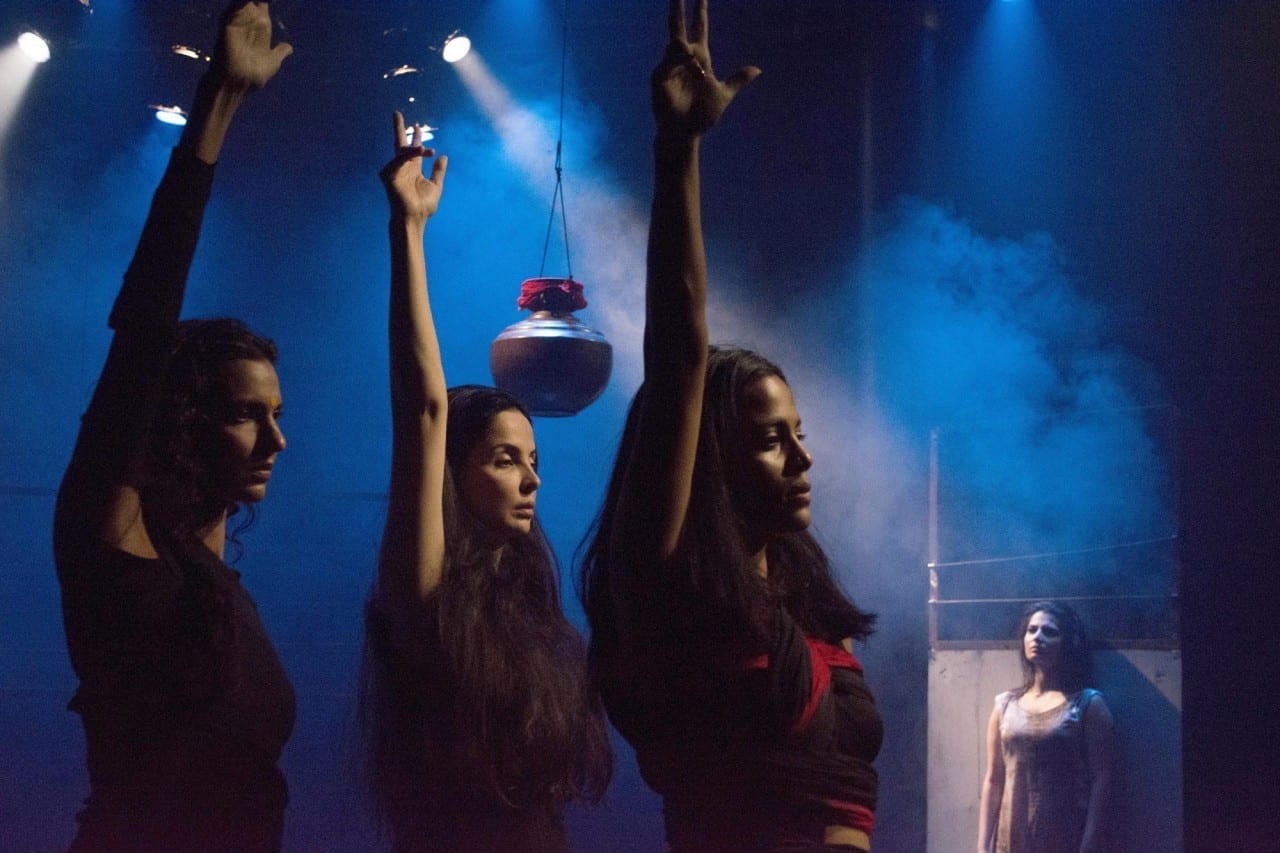Angry, stark, and with moments of startling beauty, Nirbhaya captivates from the moment the performers begin their slow walk to the stage. The work starts and ends with the brutal rape – and subsequent death – of Jyoti Singh Pandey, nicknamed Nirbhaya, which means ‘fearless’, in the press. Her death sparked mass protests across India, and inspired countless women – including those on stage – to break their suffocating silence. At the end of the performance, the women on stage prepare Jyoti for burial, cleansing and purifying her and her memory.
The cast are seated in the audience as we enter, heads bowed, silent reminders of the rape and abuse survivors that walk amongst us every day. The central part of the performance is taken up by the five main cast members telling their stories. They are not easy stories to listen to – at times, watching their faces is almost unbearable – but, ultimately, they are stories of survival. The women do not flinch away from recounting the violence done to them, although many of them are in tears as they relive the experiences. Sneha Jawale is provided with a translator, her words repeated in English by other members of the cast, and the fact that her words remain her own – the fact that all of these women are telling their stories – gives the work an integrity and impact beyond any dramatization.
Although the acts themselves are often half-disguised in swathes of cloth and semi-mime, a grotesque gracefulness to many of the movements, verbally the performers are explicit. The culture of silence, talked about so often in this performance, is shattered, and they are proud to do so. Throughout Nirbhaya the women hold each other, pass stories from hand to hand. One of the most striking moments comes as Pamela Sinha speaks of her disassociation and her fellow performer lies, trapped, in the body she no longer connects with. Sinha is Canadian-born and her presence in the work prevents any possible pretence that this is a problem confined to India’s borders instead of a global one.
Necessarily, the focus during the stories is on the individual performer, but early choral work is effective, summoning the streets of Delhi with twisting bodies and constantly moving feet. Ankur Vikal turns in a virtuoso performance. Playing every male role, he flits effortlessly between lover, baby brother and abuser.
“Disturb the universe” the women exhort us – and each other. It is hard to feel hopeful after watching the cruelty and violence of humanity laid bare, but perhaps there is hope in the fact that Nirbhaya exists at all. Hope in the women that make their voices heard, and in the audiences that allow their stories to be heard. It is not enough to follow the rules, the silence must be broken.

